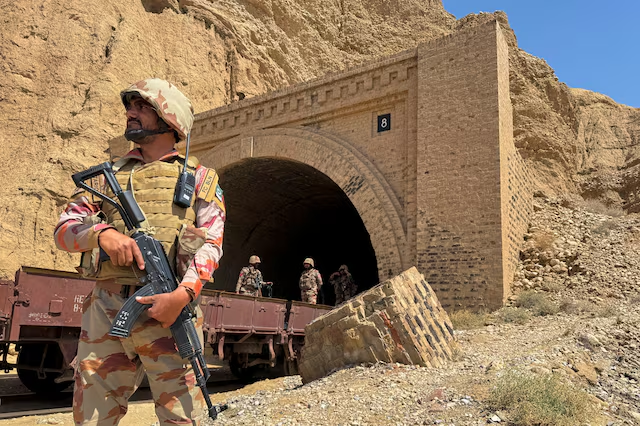
Officials say this move is aimed at disrupting communications among separatist insurgents responsible for a wave of deadly attacks.
The suspension, effective until the end of August, follows a sharp escalation in militant activity targeting military convoys, senior army officers, and Chinese projects in the mineral-rich province — home to the strategic Gwadar Port under Beijing’s $65 billion Belt and Road Initiative.
“The service has been suspended because militants use it for coordination and sharing information,” provincial government spokesperson Shahid Rind told reporters on Friday.
Balochistan, Pakistan’s largest province by land but home to just 15 million people, has around 8.5 million mobile subscribers. For many, especially in remote districts bordering Afghanistan and Iran, mobile data is the only lifeline for contacting relatives, running small businesses, or receiving emergency updates.
Local residents say the blackout is already causing chaos. “I can’t send payments to suppliers or receive orders,” complained a Quetta shopkeeper. “Even my relatives in Turbat can’t tell me if they are safe after last week’s clashes.”
Also Read: KP launches phase 6 of Double Shift program to enroll out-of-school children
Officials link the shutdown to recent high-profile attacks by the Baloch Liberation Army (BLA), which has claimed responsibility for several deadly incidents in recent weeks, including:
A roadside blast on Tuesday that killed a senior army officer and two soldiers. The March railway attack in which militants blew up a track, killed 31 people — including 23 soldiers — and briefly took more than 400 passengers hostage.
The Baloch Liberation Army (BLA) is an armed separatist group active mainly in Balochistan. In the early 2000s, the army was formed. As per the BLA, they are fighting for independence and greater control of the province’s vast natural resources, which include gas, minerals, and a key deep-sea port at Gwadar.
The group often targets Pakistani security forces, government officials, and Chinese nationals linked to infrastructure projects under the China–Pakistan Economic Corridor (CPEC). Islamabad designates the BLA as a terrorist organisation and accuses India of secretly funding it — charges India denies. The group’s insurgency has persisted for decades despite repeated military crackdowns.
The blackout comes just weeks after Islamabad banned road travel to Iran, citing security threats. Pakistan also alleges that India is funding and training Baloch insurgents to destabilize the region — a charge New Delhi denies.
With Independence Day approaching on August 14, security forces have intensified “intelligence-based operations” to dismantle militant networks. Yet critics warn that blanket communication bans risk alienating ordinary citizens already caught in the crossfire.
“Shutting down the internet will not bring peace. It only silences the voices that need to be heard,” said a rights activist in Dalbandin, requesting anonymity for fear of reprisal.




